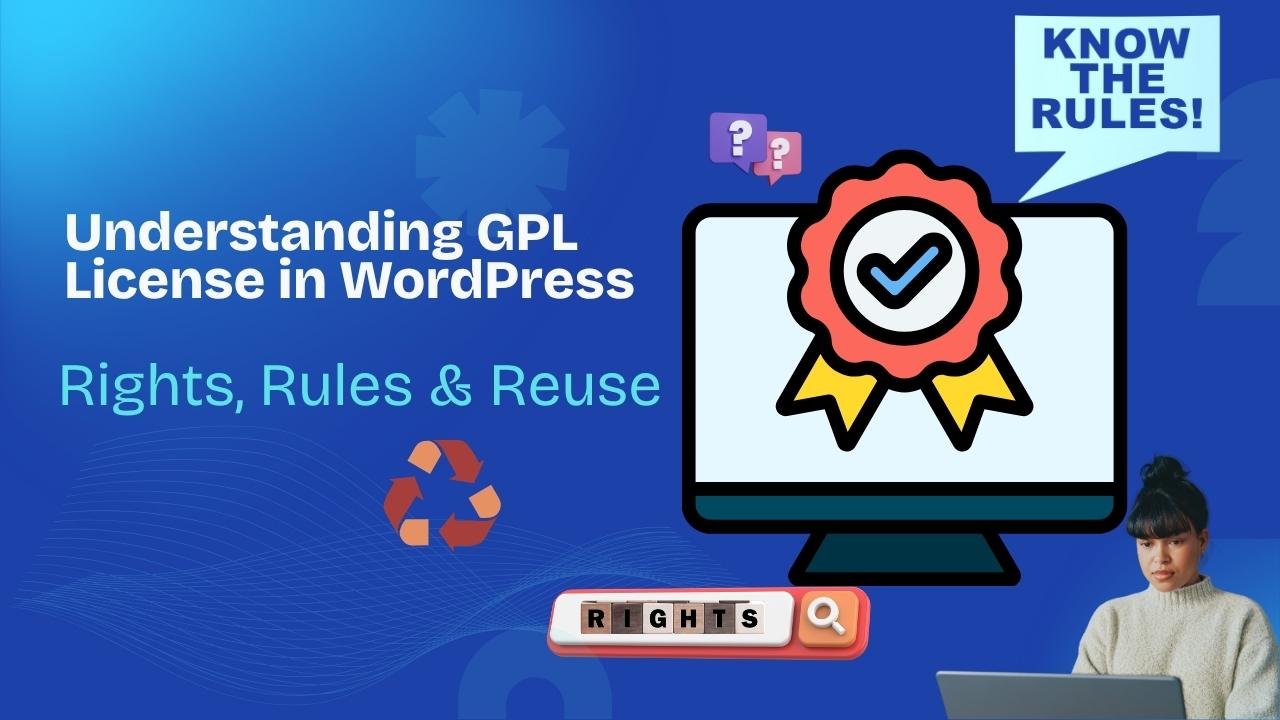Affiliate Blogging Blueprint 2025 | WordPress Setup, SEO Strategy & Monetization Steps for Beginners

Learn how to start a successful affiliate blog using WordPress in 2025. Discover setup steps, SEO optimization, plugin recommendations, and proven monetization methods to turn your blog into passive income.
Introduction: Why WordPress Is the Perfect Platform for Affiliate Blogging
Affiliate marketing is one of the most popular ways to earn passive income online — and WordPress makes it easier than ever. Whether you’re a beginner or a pro, WordPress gives you full control over design, SEO, and performance.
In this complete Affiliate Blogging Blueprint, you’ll learn
- How to set up a WordPress site for affiliate marketing
- Which plugins and themes to use
- How to optimize for SEO
- Proven ways to monetize and scale your income
Let’s start building your profitable affiliate blog step by step.
Step 1: Choose Your Niche Wisely
Your niche determines everything — content, audience, and earnings potential. Pick something you understand and can consistently write about.
Profitable affiliate niches in 2025 include
- Web hosting and WordPress tools
- Health & fitness tech (smartwatches, supplements, courses)
- Finance (credit cards, investment apps, insurance)
- Education (online courses, eBooks, AI learning tools)
- Lifestyle (travel gear, home decor, fashion, pets)
Step 2: Get a Domain and Reliable Hosting
Pick a domain name that reflects your niche and is easy to remember (e.g., smarttechdeals.com or fitgearguide.com).
Recommended Hosting for Affiliate Bloggers
- Bluehost beginner-friendly and affordable
- SiteGround fast, secure, and optimized for WordPress
- Hostinger great budget option with high uptime
- Kinsta premium managed hosting for scaling
Most of these offer one-click WordPress installation so that you can launch your site in minutes.
Step 3: Install a Lightweight & SEO-Friendly WordPress Theme
A clean, responsive theme enhances user experience and boosts SEO performance.
Best WordPress Themes for Affiliate Blogging
- Astra super lightweight and customizable
- Kadence perfect for blog + WooCommerce integration
- GeneratePress performance-focused with clean code
- Blocksy modern block-based theme for affiliate bloggers
- OceanWP flexible design options for any niche
Step 4: Essential Plugins for Affiliate Marketing Success
Plugins transform a simple blog into a powerful affiliate platform.
Must-Have Plugins
Purpose | Plugin | Benefit |
SEO Optimization | Rank Math / Yoast SEO | Improve keyword ranking and meta tags |
Affiliate Link Cloaking | Pretty Links / ThirstyAffiliates | Make affiliate links look clean and track clicks |
Caching & Speed | WP Rocket / LiteSpeed Cache | Optimize load time for better SEO |
Security | Wordfence | Protect against malware & brute force attacks |
Analytics | Site Kit by Google | Connect Google Analytics and Search Console |
Email Marketing | MailPoet / ConvertKit | Build and manage subscriber lists |
Step 5: Create High-Quality Affiliate Content
Content is the backbone of your affiliate business. Focus on helping users, not just selling products.
Content Types That Convert
- Product Reviews “Astra Theme Review: Is It Worth It in 2025?”
- Comparison Posts “GeneratePress vs Kadence: Which Is Better?”
- How-to Guides “How to Set Up an Affiliate Blog with WordPress”
- Listicles “Top 10 SEO Plugins for WordPress Affiliate Sites”
- Tutorials + YouTube Integration Add videos to improve engagement
Step 6: Optimize Your Blog for SEO
On-Page SEO Checklist
- Include focus keywords in titles, meta descriptions, and alt texts
- Use internal linking to connect related posts.
- Write descriptive URLs (/best-wordpress-affiliate-plugins/)
- Optimize images with the WebP format.
- Add schema markup (Rank Math or Yoast handles this easily)
Off-Page SEO Strategies
- Guest post on authority blogs in your niche
- Share your articles on social platforms and forums.
- Build backlinks through value-driven collaborations.
Step 7: Build an Email List
Email marketing is vital for affiliate sales.
Offer lead magnets like
- Free eBooks or guides
- Discount alerts
- Product comparison charts
Use plugins like MailPoet, FluentCRM, or ConvertKit to automate newsletters and segment your audience.
Step 8: Monetization Methods for Affiliate Blogs
Once your traffic grows, it’s time to monetize effectively.
Proven Monetization Strategies
- Affiliate Programs Amazon Associates, ShareASale, CJ, Impact, Awin, or theme/plugin partnerships like Elementor & Astra.
- Sponsored Posts Collaborate with brands for reviews.
- Display Ads Integrate Google AdSense or Mediavine.
- Digital Products Sell eBooks, templates, or courses.
- Email Promotions Share affiliate deals through newsletters.
Step 9: Track Performance & Scale Up
Use analytics to measure what’s working.
Tools to Track
- Google Analytics 4 (GA4) Monitor traffic & conversions
- Pretty Links Reports See which affiliate links perform best.
- Google Search Console Identify top keyword.s
- Hotjar / Microsoft Clarity Understand visitor behavior
Once you identify high-performing content, update and repurpose it into videos, infographics, or social posts to maximize reach.
Step 10: Stay Consistent & Keep Learning
Affiliate marketing is not a get-rich-quick scheme. It’s about consistent publishing, smart SEO, and nurturing your audience.
Keep learning about
- Google algorithm updates
- AI tools for content automation
- CRO (Conversion Rate Optimization) strategies
Stay adaptable, and your affiliate blog will grow into a long-term digital asset.
Final Thoughts
Building a successful affiliate blog with WordPress takes effort — but with the right setup, SEO optimization, and monetization strategy, it can become your best source of passive income.
WordPress gives you complete freedom to design, optimize, and grow your online business. Start small, stay consistent, and let your blog compound results over time.
Top 15 FAQs About Affiliate Blogging with WordPress
- What is affiliate blogging? Affiliate blogging is promoting other companies’ products on your blog and earning commissions when readers make purchases through your referral links.
- Do I need technical knowledge to start an affiliate blog? No. WordPress is beginner-friendly, and most setup steps (domain, hosting, plugins) are one-click.
- How much can I earn from affiliate blogging? It depends on traffic and niche. Successful bloggers earn from $500 to $10,000+ per month or more.
- Which is better for affiliate marketing — WordPress.com or WordPress.org? Always use WordPress.org. It offers full control, plugin access, and monetization freedom.
- How long does it take to rank a new affiliate blog? Typically 3–6 months with consistent SEO efforts and quality content.
- Are paid themes better for affiliate marketing? Yes. Premium themes like Astra Pro or Kadence Pro offer speed, design flexibility, and SEO improvements.
- How many plugins should I install? Keep it lean — around 10–15 essential plugins to avoid slowing your site.
- How can I get free traffic to my affiliate blog? Use SEO, Pinterest, Quora, and social sharing. Publish regularly and optimize for Google.
- What are the best affiliate programs for WordPress users? Elementor, Bluehost, WP Rocket, Rank Math, and Amazon Associates.
- Should I disclose affiliate links? Yes. Always add a disclosure for transparency and to comply with FTC guidelines.
- What is link cloaking, and why is it important? It hides long affiliate URLs (e.g., affiliatesite.com/?ref=1234) into short, clean links for better clicks and trust.
- Can I combine affiliate links and ads? Yes, but keep the balance. Avoid overcrowding pages with too many ads or links.
- Which content type drives the most affiliate sales? In-depth reviews, “best of” lists, and comparison articles perform best.
- What is the ideal post length for affiliate SEO? 1,500–2,500 words with in-depth analysis and internal linking works great.
- How do I scale my affiliate income? Diversify across multiple programs, build email funnels, and optimize high-traffic pages for conversions.
GPL Club Sites vs. Official Theme Developers (2025): Which WordPress Source Is Safe and Worth It?
When you start exploring WordPress themes, one term that quickly appears is “GPL.” You’ll also find GPL club websites promising…
Best Affiliate Marketing Networks & Offerings for GPL WordPress Themes & Plugins in the US/UK (2025)
Looking to monetize GPL WordPress themes and plugins? This 2025 guide compares top affiliate networks (Awin, CJ, ShareASale, impact.com, PartnerStack)…
Best Practices for U.S. Affiliate Marketers Promoting GPL WordPress Themes & Plugins (2025 Guide)
Learn the top strategies for U.S. affiliate marketers to promote GPL-licensed WordPress themes and plugins ethically and profitably. Discover marketing…
Understanding GPL License in WordPress (2025): Complete Beginner’s Guide to Rights, Rules & Reuse
Introduction Learn everything about the GPL License in WordPress — what it means, why it matters, and how it impacts…





